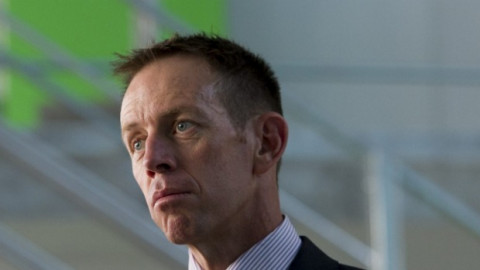
ACT schools must now follow strict new guidelines on placing students in withdrawal spaces, as part of the government's response to the autism cage scandal.
The guidelines stipulate that withdrawal spaces should not be locked and students must not be prevented from leaving.
But the protocols do include references to the potential use of physical restraint and seclusion under which a student can be confined in a room that they cannot leave. Both are considered one-off options of the last resort.
The ACT made international headlines last April after the then education minister Joy Burch announced an inquiry into why a 10-year-old boy with autism had been locked in a two-metre by two-metre metal cage.
The cage had been built as a withdrawal space to contain the child when the need arose.
As part of its response to an independent inquiry into students with challenging behaviour, the ACT government agreed to issue new guidelines on the appropriate use of withdrawal spaces, seclusion and physical restraint.
The protocols, to be issued this week as part of the Safe and Supportive Schools Policy Guidelines, define how challenging behaviour must be handled as a one-off case, and provide check lists for staff to manage the escalation of continuing behavioural issues.
All planned response to a student with challenging behaviour must be approved, monitored and reviewed regularly.
Putting a student in a withdrawal space can take place only after a management plan is put in place. The plan must be made in consultation with an appropriate professional, agreed to by parents, notified to the Education Directorate and reviewed at least once a term.
If any restrictive practice is used on a student, a management plan has to be triggered within two working days of the incident. If such a plan is already in effect, a review will need to take place within two working days of the incident.
The protocols accept that in some cases a student may need to be physically restrained for his or her safety, or the safety of other students. They also accept that staff "should not be included in a protective action role if they do not feel they have adequate training in the procedure or if their personal circumstances mean their safety or wellbeing would be put at risk".
Emergency services can be called in extreme instances.
ACT Education Minister Shane Rattenbury said he was satisfied the new 11-page document had struck the right balance.
"Having spoken to many teachers, it is clear to me that they do find some behaviours very difficult to deal with and it is about making sure they have protocols and support to ensure they have a safe workplace," he said
"The guide includes information on what is a restrictive practice, when it should not be used, when it can be used and the requirement for putting in place plans to reduce the need for restrictive practices."
He said he had accepted the education portfolio with the cage incident forefront in his mind.
"Like most people in the community, I was pretty shocked and very concerned. I really didn't expect that sort of thing to be happening in our schools and I have come into the portfolio with a priority being that we need to prevent this from happening again.
"It was a real wake-up call about what is appropriate and what is not."
All protective action plans must now focus on ways to reduce restrictive practices on students through positive behaviour reinforcement and increased support.
Mr Rattenbury said the new guidelines were just part of the government's response to the Shaddock Review through a new three-year Schools for All program.
"The first year of work will focus on implementing the 50 recommendations, with the next two years focused on ensuring that change has been effective," he said.
The ACT government has allocated $7 million for several initiatives, including infrastructure grants to support the development of sensory spaces in schools, targeted professional learning, training and support for staff.
Meanwhile, an independent group that includes emeritus professor Tony Shaddock will oversee the implementation of the recommendations.